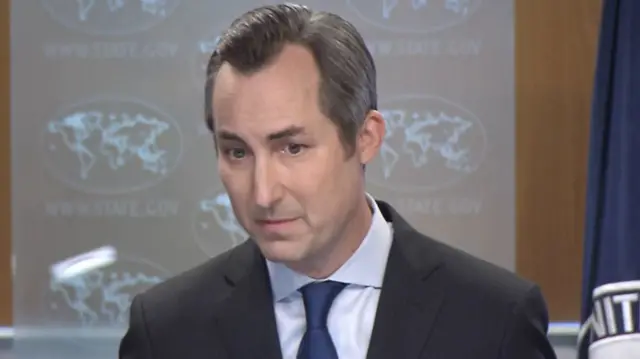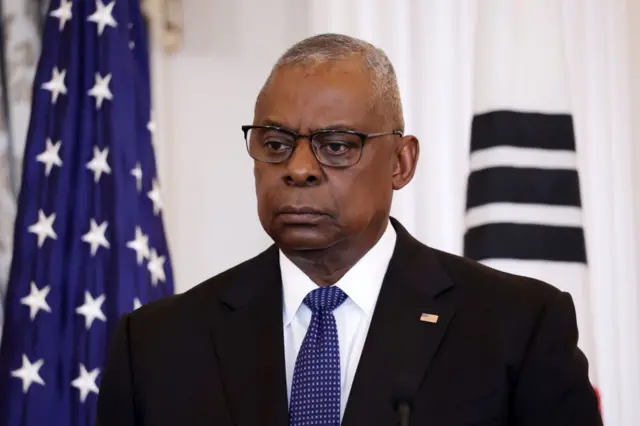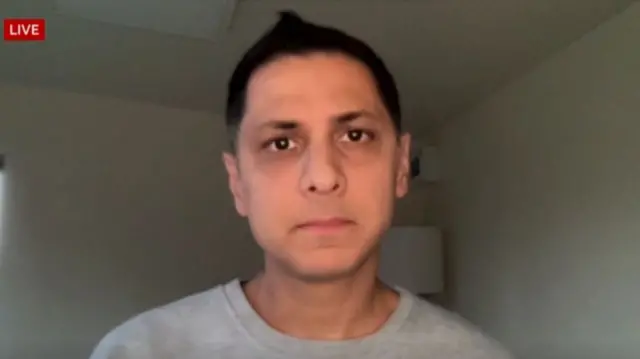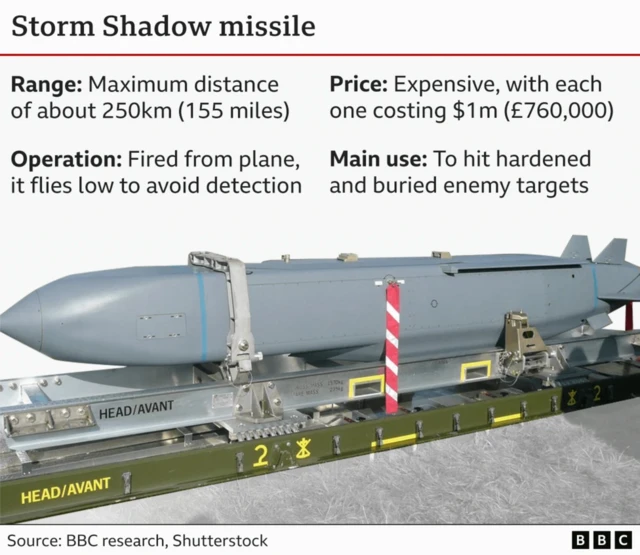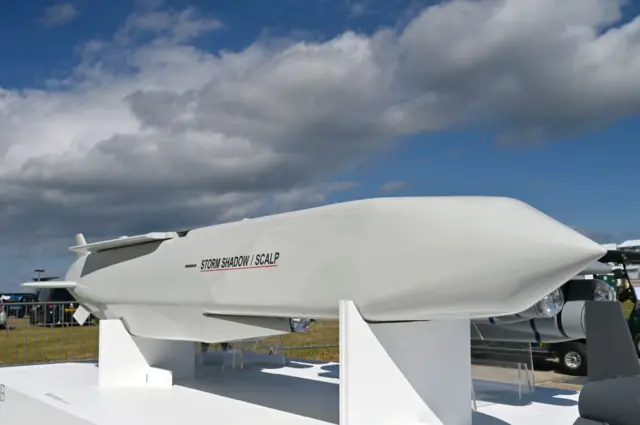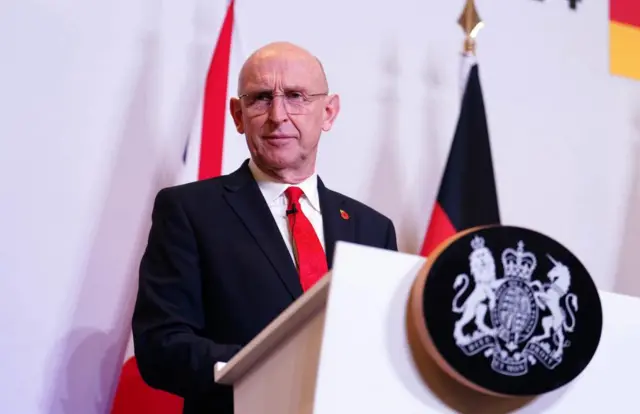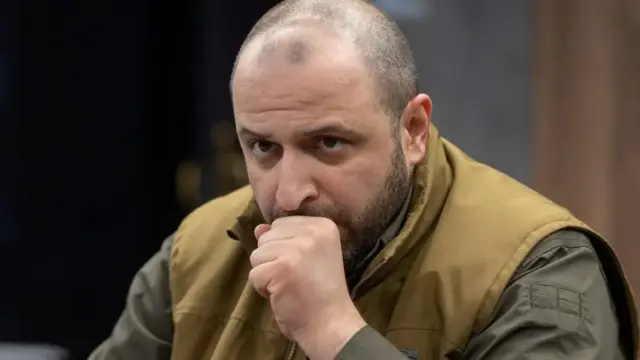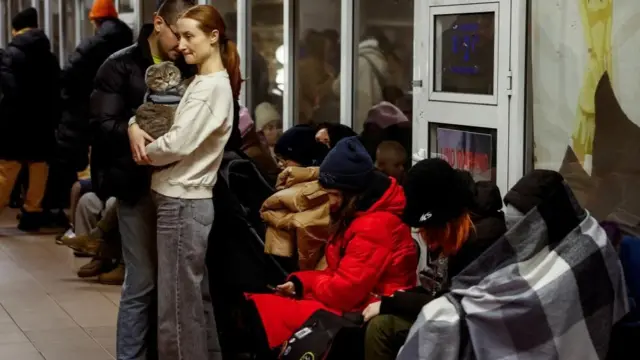'Russia is just as insane as it was in February', Zelensky sayspublished at 20:40 GMT 20 November 2024
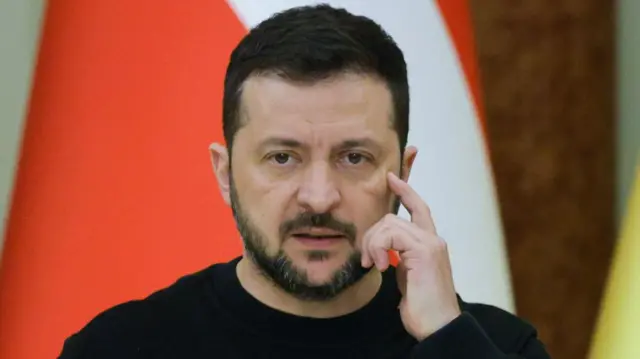 Image source, EPA
Image source, EPAIn his nightly video address, Ukrainian President Volodymyr Zelensky acknowledges that there have been a lot of "nerves and questions" about the looming threat of a large attack from Russia today.
Those threats led to the US embassy in Kyiv to temporarily close, after it said it had knowledge of a "potential significant air attack" from Moscow.
The Ukrainian leader goes on to ask citizens to continue to heed air raid alerts, but says that the "information frenzy" that took place today "benefits only Russia".
"Today, on the 1,001st day of a full-scale war, Russia is just as insane as it was on the 1,000th day and on February 24," Zelensky says, highlighting the day in 2022 when Russia's full-scale invasion of Ukraine began.
The Ukrainian government offered a similar warning to Zelensky's night-time address, saying earlier today that Russia was spreading fake messages about the attack on Kyiv and that it was a "massive informational and psychological attack against Ukraine".
